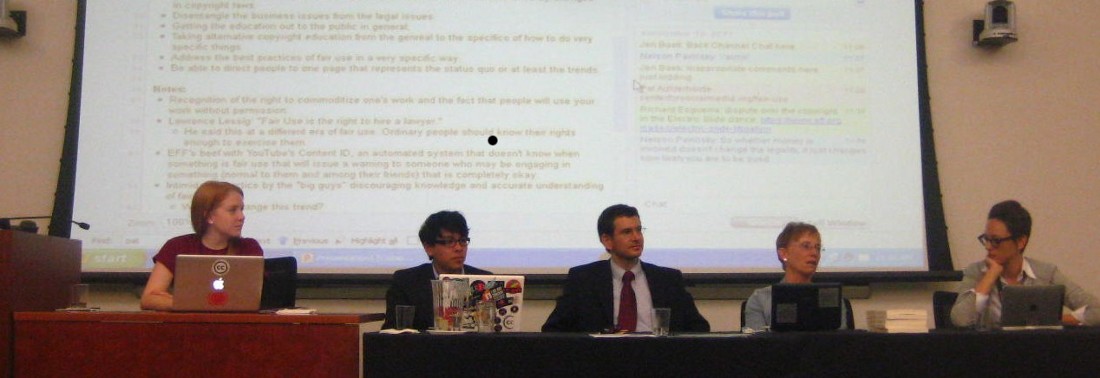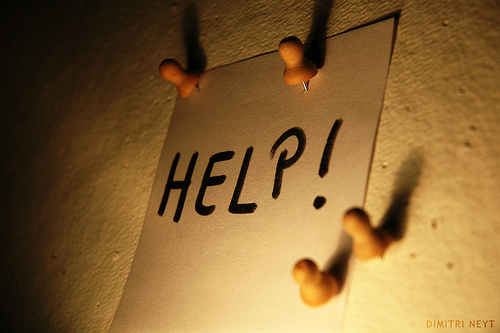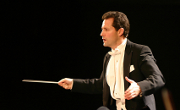
 The U.S. Supreme Court began hearing arguments Wednesday in Golan v. Holder, which argues against action taken by Congress to move thousands of works from the public domain back under copyright restrictions. It’s not small beer in the copyright world. Google supports the challenge. The New York Times, Washington Post and others ran stories today.
The U.S. Supreme Court began hearing arguments Wednesday in Golan v. Holder, which argues against action taken by Congress to move thousands of works from the public domain back under copyright restrictions. It’s not small beer in the copyright world. Google supports the challenge. The New York Times, Washington Post and others ran stories today.
Rich Bailey interviewed the plaintiff, conductor Lawrence Golan, for Question Copyright. (Some of Golan’s comments to us are similar to what’s in the New York Times piece “Will Copyright Stifle Hollywood?” by Peter Decherney, an associate professor of film studies at the University of Pennsylvania.)
Here is a lightly edited transcript of Lawrence Golan’s remarks:
Rich Bailey: Can you explain what’s involved in this case?
Lawrence Golan: Back in ’94 the GATT treaty was passed, also known as the Uruguay Roundtable Agreement. And essentially what it did was it took out of the public domain thousands and thousands if not millions of pieces of music that were in the public domain. To give you some examples of things that you would know: music by Shostakovich and Prokofiev and Stravinsky and some specific examples like Peter and the Wolf. That’s probably the most recognized piece that was taken out of public domain, although there were hundreds of thousands if not millions of others.
And how that affects people in this country is as follows.
First of all let me tell you how it works in general with procuring music for performance. Any symphony orchestra that wants to play a piece of music has to obtain the sheet music, the actual physical pieces of paper to be played on the music stands for all the members of the orchestra so that they can play the music, and of course there’s a score for the conductor who has all the parts. And for any given piece of music, there are essentially two possibilities. Either the piece is available for purchase or it’s not available for purchase and only available as a rental.
Now the difference between the two is like this. If something’s available for purchase, an orchestra can buy the music. They buy all the parts, the score and the price varies but for a 10 to 15 minute piece the price might be $150 let’s say. And for a longer more substantial piece, an hour-long symphony maybe, the price would be up to $300 or so. And then the orchestra purchases the music, and it owns the music and can keep it in its library and perform it as frequently as it would like to without having to re-buy the music every time. It keeps the music and stores it in its library.
In addition to not having to buy it each time, there’s also a question of all the performance markings that go into playing any piece of music. Even before the orchestra musicians get the parts, the conductor and the librarian and the principle players have worked to create a series of markings that the librarian then transfers into all the parts. For example strings bowings. And this is like hours and hours and hours of preparation even before the musicians get the parts. Then once they get them, during the rehearsal process more markings are put in. The conductor might say play that softer, play that louder or whatever the case may be, and all those markings go into the part. And again, with a piece that the orchestra was able to purchase, those markings stay in the parts and then the next time they do the piece two years later, four years later, whatever it is, all those markings are there. And it’s infinitely easier and less time consuming to do it the second, third and fourth times once those markings are there.
Now the other side of the equation is when a piece is not available for purchase and it’s only rented by the publisher. Now in cases like that, again the price varies but in average pricing it could definitely be way more and it sometimes could be a little less but average prices to rent a symphony is around $600-700 to rent it to perform the piece one time. And in fact even if you perform it in three concerts on the same weekend, they charge you for each concert, although usually the second and third performances are at a reduced rate. So let’s say you have three concerts in one weekend: $600 for the first performance, maybe $500 for the second and $300 for the third. It could be $1,500 to play the piece on one weekend. And then you go through that same process of all the markings that I talked about, and then you have to erase the markings and return them mark-clean to the publisher.
And so if you wanted to play the piece again in two years or four years or whenever, the orchestra has to again pay $500, $600, $1,500, whatever it is depending on the piece or depending on the number of performances to rent the same piece again that they just played two years ago, go through all the bowing and marking process and everything. And so as you can see it’s just so incredibly more advantageous to be able to purchase music and keep it in the library and just reuse it at will. That’s the general procedure.
Now specifically in regard to this law, there were hundreds of thousands of pieces of music that were in the public domain. Orchestras were able to purchase the music for a reasonable price and then just kept it in their library and had the markings in it and so on. Those pieces got taken out of the public domain, which means that since 1996 when the law went into affect, orchestras can no longer buy those pieces that they used to be able to buy. Instead they have to rent it.
There was one other thing I forgot to mention, which is a licensing fee. When something’s in the public domain, not only can you buy the music but you don’t have to pay anyone a licensing fee each time you play it. But when something is rental only and under copyright, not only do you have to rent the music. On top of that, you have to pay a licensing fee to the publisher every time you want to play the piece. And that even goes for pieces that you purchased before that law came out. You actually have to pay a licensing fee on something you already own every time you want to play it.
Now here’s where the size of the organization comes into play. The larger organizations — just a couple examples would be the New York Philharmonic, the Boston Symphony, Chicago Symphony — those orchestras first of all have very large budgets and although they’re not happy about it, they can afford to rent whatever pieces they need to rent. And in terms of the licensing fee, those larger organizations play a blanket licensing fee every year that covers all their copywritten music.
So it doesn’t really affect the big, larger organizations that much. They have to pay more for rentals than they used to, but it’s not debilitating. On the other hand, here’s how it works with smaller orchestras whether they be professional orchestras in smaller towns or university orchestras or high school orchestras or youth orchestras. They too have a budget, like the larger orchestras for renting and/or purchasing music but it’s obviously much, much smaller.
Depending on the orchestra, their annual budget for all music procurement could be $300, $500, maybe $1,000, maybe $2,000. It all depends on the organization and what kind of money they have. But for an organization whose annual budget for music procurement is $300, then by definition to rent a piece that costs $500 for one performance literally is impossible. That’s more than they have for the entire year. On the other hand let’s say an orchestra that has a budget of $1,000 for the year for music, a rental piece of $500 for one piece would take up half their annual budget. You know maybe they have to rent and perform 20 or 30 pieces in a year. That one piece is going to take up half their budget.
So as you can see, it makes it cost prohibitive for those orchestras to play the music. And on top of that, by the way, they also have to pay those licensing fees, which they didn’t have to pay before. So in effect what the law did was this: because of the costs involved, it currently prevents many, many smaller orchestras and educational institutions from physically performing these pieces. It’s not a question of well, they just have to pay more. If they don’t have more they can’t play the piece. So they’re simply not playing those pieces.
That affects other people in the community, too, anybody else who would go to concerts, for example, Peter and the Wolf. In the old days before 1994, almost every orchestra in the country, when they played a youth concert for children, they would play Peter and the Wolf because it’s one of the greatest pieces of all time specifically designed and written for teaching children about the instruments in the orchestra. So we all as kids undoubtedly had heard and/or played live performances of Peter and the Wolf. Well that doesn’t happen anymore in smaller communities. Many smaller communities where they would love to play Peter and the Wolf for their children’s concert can’t because they are not allowed to purchase the music and to rent it is more than they have in their budget. So all the children in these smaller communities are being deprived of an opportunity to hear a live performance of Peter and the Wolf.
Again that’s just one example. It’s literally hundreds of thousands of pieces that are not getting played in many, many smaller communities and at schools, educational institutions.
And who is this bill supposedly protecting? I made it pretty clear who it’s affecting negatively. Well who is it affecting positively? Well in theory it’s supposed to protect the heirs, the great grandchildren or the great, great grandchildren of many of these composers who have been dead for decades because they would now get all these royalties that they didn’t used to get. And again with the large orchestras, the New York Philharmonic, sure, the heirs of these composers are getting a very small royalty check from the couple of orchestras that play these pieces. But by and large, the pieces are simply not being played.
So it’s not even really helping the great, great grandchildren of the composers because their music just isn’t being played. And I think any composer would tell you that what they strive for — their goal in life, or at least their professional goal within life — is to have their music heard. That’s why they write the music. And sure, they want some payment for it during their lifetime and for several years after they write the piece. That’s what they do for a living, and that’s why copyright law was invented to give creators some financial income for their work and to give them incentive them to create these works. But several generations down the line, I think if a composer were given the option of having their music played versus not having their music played and their great, great grandchildren getting a tiny little royalty check every now and then, they would much prefer to have their music played.
So it’s hurting the composers, it’s hurting the orchestras, it’s hurting the communities that this orchestra serves and really in my opinion it’s really not benefitting anyone.
Bailey: What kind of reaction do you hear from your orchestra conductor colleagues?
Golan: The reaction has been nothing but absolute and unequivocal support from everyone in the industry. I mean I get e-mails, just dozens of e-mails of people thanking me for doing this and how much they support it, is there anything I could do and how horrible that copyright law is when they took all those pieces out of the public domain and how horrible it is for their orchestras and our communities and their students. It’s been nothing but 100 percent support.
Bailey: What about composers? Is there any difference in their reaction? Do you hear from them?
Golan: I do hear from them actually, and again I’ve got nothing but support. There are composers who often do what’s called arranging. For example they might take a piece of music by Prokofiev let’s say, which is professional-level difficult music, and they would arrange it and make it easier so that a junior high orchestra or a high school orchestra could play it. They make a simplified version of it and that’s what they do for a living, they arrange pieces. Well once those pieces got taken out of the public domain it’s not legal to make the arrangements of them.
So those composers and arrangers are not able to use those pieces, and of course the junior high orchestras and high school orchestras are not able to play those pieces, because the arrangements just aren’t even being made. They can’t play the original because it’s too expensive. They can’t play a simplified version because it’s illegal to make a simplified version. They just can’t play the piece.
Bailey: Do all contemporary composers do arrangements like that?
Golan: No, not all composers. But I don’t know of any composers that are complaining about what we’re doing with the case because nobody –nobody — is saying that a composer writing a piece today should not have copyright protection and should not earn royalties from their music or be able to rent it or do whatever they want. Nobody’s saying that. What we’re talking about are pieces that were written decades ago and were in the public domain and have now been taken out of the public domain.
Bailey: Can you say what proportion of contemporary composers would fall into those two categories, those who only write original music and those who do their own work and do arrangements?
Golan: I really can’t. What I would be more comfortable saying is that in terms of people that are making a living at some form of composition, it seems to me that a large percentage would be doing arranging and probably a smaller percentage of people are making a full-time living strictly as an original composer.
Bailey: How do the issues at stake in this case compare to the retroactive term extensions that were challenged in the Eldred case?
Golan: Well they’re definitely related, but they are different. What the copyright extension did, well I guess it’s self-explanatory. They just keep extending the length of copyright protection. Some people call it the Mickey Mouse Law because every time Mickey Mouse is about to become public domain Disney lobbies Congress to extend the copyright, and because they have so much money and power, they succeed. So every 20 years it gets extended. So you can expect that 20 years from now when Mickey Mouse is about to enter the public domain, Disney will lobby for it not to enter the public domain and they’ll extend copyright again.
I guess they’re similar in that we’re talking about pieces of music and works of art that were created decades and decades ago, and in both cases the laws have completely lost sight of the original intent of our founding fathers in terms of what copyright protection is for.
Copyright protection — and it’s stated right in the constitution — was created to promote creative work from authors by giving them financial incentive that if they create a work, for the next 28 years they will be able to reap financial rewards from it. But how does extending copyrights — or in the case of Golan vs. Holder, taking things out of the public domain and reinstating copyrights of people who have been dead for decades — how does that provide incentive for those people to create more great works? They’re dead already. They’re not going to be creating much more.
So in that sense I’d say they’re very similar. The way that they’re different is that with Eldred and the copyright extensions, we were talking about pieces that were under copyright currently at the time and they’re just getting their copyright extended. Whereas here we’re talking about pieces that were no longer under copyright protection, were in the public domain, and then have been taken out of the public domain and put back under copyright protection. That’s a fundamental difference.
Bailey: So, in a nutshell, what is the damage caused by taking them out of the public domain?
Golan: It prevents many smaller organizations from performing a large body of work and prevents many smaller communities from having the opportunity to hear such works.
Bailey: How did you get involved in the case originally? I think there was another plaintiff who later died. Was he – did you replace him or were you a part of the original case?
Golan: I was part of the original. That’s an important point. This is not about me. This is about the entire industry — classical music, orchestral music as an entire industry — and there are many conductors and other people that are named plaintiffs on case and I just happened to be the lead plaintiff, but I’m by no means the only conductor or person in the industry who’s involved in this.
Bailey: If copyright extensions are driven by Disney’s interests, who was pushing for these re-restrictions?
Golan: We’re going a little bit out of my realm of expertise, and you might want to ask that question to someone else. But my understanding was that the U.S. government did it with the hopes that if they did this, then other countries would be more respectful of U.S. works that were under copyright. And so it was like a good faith effort hoping that that would happen, but there was actually nothing in the law itself that required that to happen. And again my understanding — but I think you should check this with somebody who knows more than I do on the legality of it — is that in hindsight it didn’t help.
Bailey: So it’s not like there was some hidden lobby of heirs who were starving and looking for their royalty checks.
Golan: No, not that I know of. And again, I mean maybe you could find this out from a composer or you could try to find an heir of Shostakovich. There are three composers who have famous names that were affected like this: Shostakovich, Prokofiev and Stravinsky. Beyond that there are literally thousands of other composers that you’ve never heard of that are affected by this. And those people absolutely are not having their music played. Most audiences want to hear famous things. They want to hear famous pieces, things they’ve heard before.
Now we in the industry, we like to play things beyond the famous ones. From an artistic standpoint we think it’s healthy not only for the performers but also for the audiences to hear things they haven’t ever heard before and combine the relatively unknown pieces with pieces they do know and love. And you know often times we try to do that, but once this treaty was passed… I mean now you’re saying okay, here’s an unknown piece of music by an unknown composer and your audience has never heard of it. So they’re not really that keen on you programming it anyway. Oh and on top of that, you have to rent it for $600 instead of purchase it for $50.
That treaty was a nail in the coffin guaranteeing that thousands of pieces will not be performed. And going back to your question about how much heirs get from this, the heirs of the vast majority of the composers involved are getting nothing. They’re just not getting played.
And then in the case of the three famous ones — Shostakovich, Prokofiev and Stravinsky — you know they have many heirs probably for each one. If the New York Philharmonic plays a Shostakovich symphony, let’s just estimate that all the heirs will get a 10 percent cut, and then that’s split among them. We’re talking about royalty checks of pennies, depending on how many times it’s split. Even if it’s only one person, oh it’s $20.00 – ah great! I got a royalty check.
We’re talking about classical music here. We’re not talking about the Beatles or Michael Jackson. Nobody is going to make a living off royalties from a couple pieces they’re going to play.
Bailey: One of the articles said something about this case changing the physics of the public domain. Is it too much to say that?
Golan: I’m speculating that they’re referring specifically to the fundamental premise that once something enters the public domain it’s in the public domain forever. If this law does not get overturned, then yeah, the fundamental essence of the public domain has been changed because it’ll set a precedent that things can be taken out of the public domain. So who’s to say that for whatever reason Congress or anyone else can remove something from the public domain once it has entered public domain.
There’s absolutely nothing in the Constitution or any amendments or any other laws in the 200-year history of the country that ever mentions taking something out of the public domain. There are many statements about things being under copyright, things entering the public domain and various years and extensions, but it would be unprecedented to take something out of the public domain.
Bailey: What is the core issue here for you? What’s motivated you to be involved with this and to continue with it for so long.
Golan: The core issue is wanting to have the ability to perform this great body of literature that we used to be able to perform but no longer can. What we used to do was absolutely legal and in concert with the Constitution, and right now what we’re being told is that what we used to do is now illegal, you can’t do it anymore.
![]()
![]() [Update 2011-12-06: Jennifer Novotny’s article in the Stony Brook Press is now up.]
[Update 2011-12-06: Jennifer Novotny’s article in the Stony Brook Press is now up.]
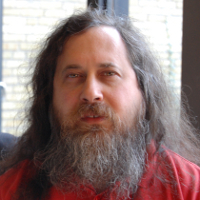 This is a bit of inside baseball [
This is a bit of inside baseball [


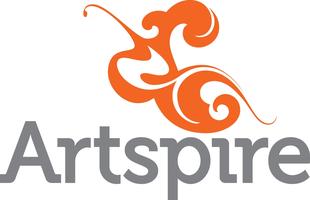
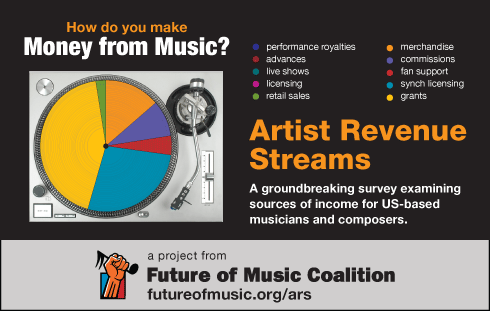
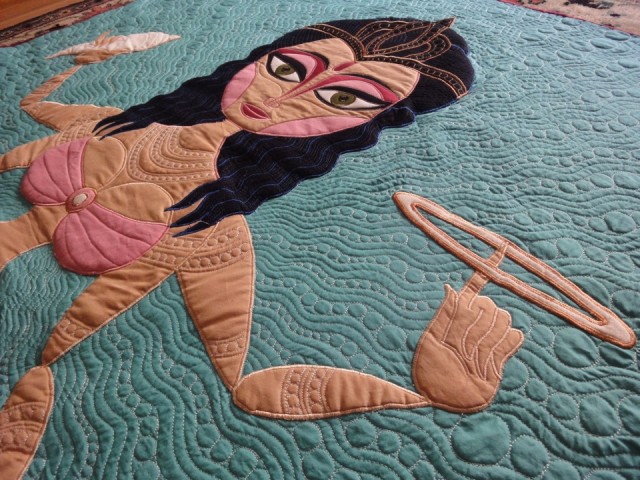
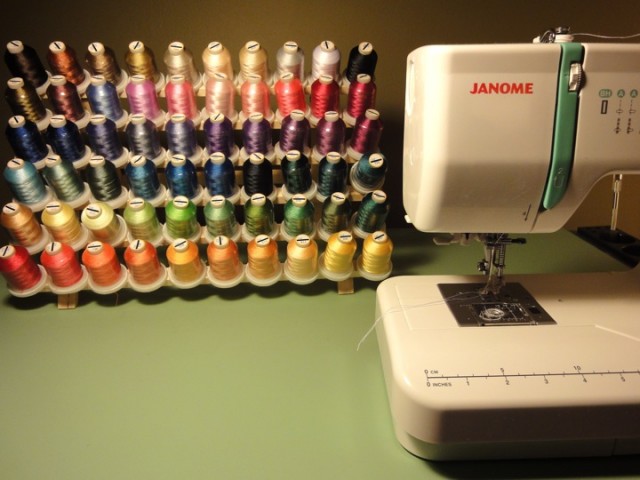
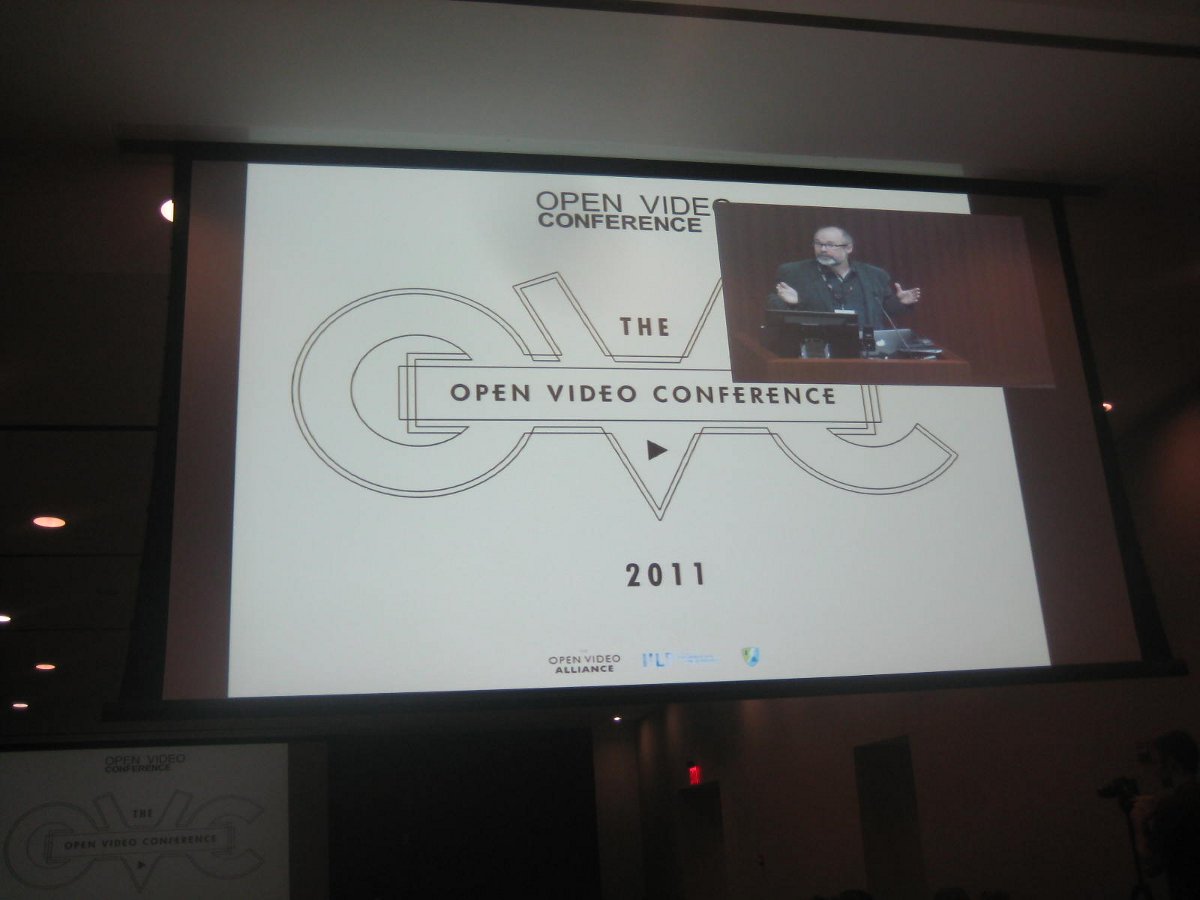 As we announced a few weeks back in
As we announced a few weeks back in 